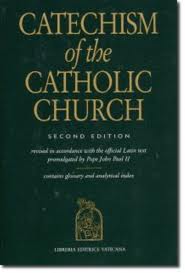 JD asks: “I don’t see any mention in the Catechism about Catholics being forbidden to use alternatives such as homeopathy or acupuncture to treat illnesses like cancer or diabetes. Is this true, and if so, can you tell me what documents contain this teaching?”
JD asks: “I don’t see any mention in the Catechism about Catholics being forbidden to use alternatives such as homeopathy or acupuncture to treat illnesses like cancer or diabetes. Is this true, and if so, can you tell me what documents contain this teaching?”
Yes, this is true. This teaching can be found in the Ethical and Religious Directives for Health Care Services (Part V, No. 56) which is based on the Catechism.
 These Directives state that “A person has a moral obligation to use ordinary or proportionate means of preserving his or her life. Proportionate means are those that in the judgment of the patient offer a reasonable hope of benefit and do not entail an excessive burden or impose excessive expense on the family or the community.”
These Directives state that “A person has a moral obligation to use ordinary or proportionate means of preserving his or her life. Proportionate means are those that in the judgment of the patient offer a reasonable hope of benefit and do not entail an excessive burden or impose excessive expense on the family or the community.”
This teaching derives from Pope John Paul II’s encyclical letter On the Value and Inviolability of Human Life (Evangelium Vitae).
Keep in mind that “proportionate means . . . in the judgement of the patient offer a reasonable hope of benefit . . .” does not mean that we can use alternatives such as homeopathy and acupuncture in spite of their lack of scientific credibility just because we want to believe they’ll work. If the treatment has not been scientifically validated (which generally means subject to methodologically sound testing and peer review) we cannot use them to the exclusion of ordinary means to treat serious or contagious diseases.
As I’ve quoted elsewhere in this blog, and in my Learn to Discern Compendium, Kevin G. Rickert, Ph.D. explains in “Superstition and Unscientific Medicine: A Thomistic Analysis,” which appeared in Homiletics and Pastoral Review in December, 2005: “Catholic moral teaching requires that we use ordinary means to save a life or to treat a malady. When a person is confronted with a life threatening condition, or some less serious illness (especially a communicable disease), which can be easily treated by ordinary means, there is a moral obligation to do so.”
The only other exception to this rule is if there are no ordinary means available, such as when doctors tell a patient that there is nothing further they can do for them.
Unscientific medical cures such as alternatives that are either untested or failed to pass the test of rigorous scientific scrutiny (as is the case with most alternatives in use today) are not considered to be ordinary “because they are not real means at all,” Dr. Rickert writes. “As such, they are neither required nor permitted. The main problem with these kinds of “cures” is that they don’t really work; they are irrational, and as such they are contrary to the natural law.”
When we put our full faith in one of these untested methods to treat a serious illness like diabetes or heart disease, while refusing the best science of the day, we fall into the trap of deception and error, aka “superstitious medicine.”
“In this case, I subject my mind to deception, and at the same time, I neglect my obligation to employ ordinary means; in so doing, I subject my body to illness and my loved ones to potential hardships.”’
For those who wish to better understand ordinary and extraordinary means as it relates to the use of alternatives, please read “Alternative Medicine and the Duty to Employ Ordinary Means” by Dr. kevin G. Rickert.
© All Rights Reserved, Living His Life Abundantly®/Women of Grace® http://www.womenofgrace.com









